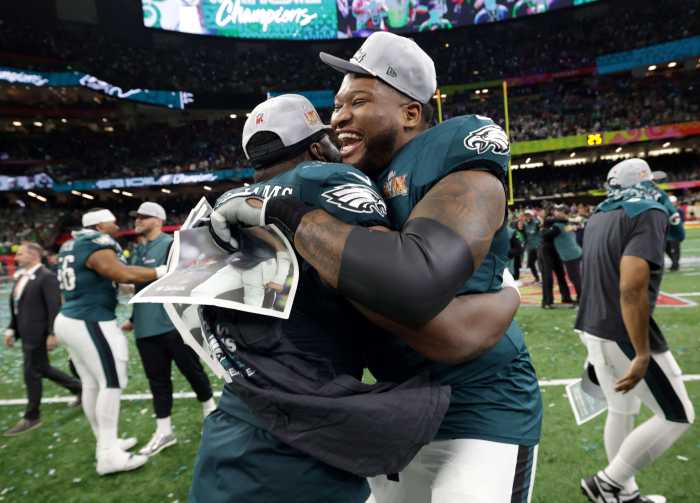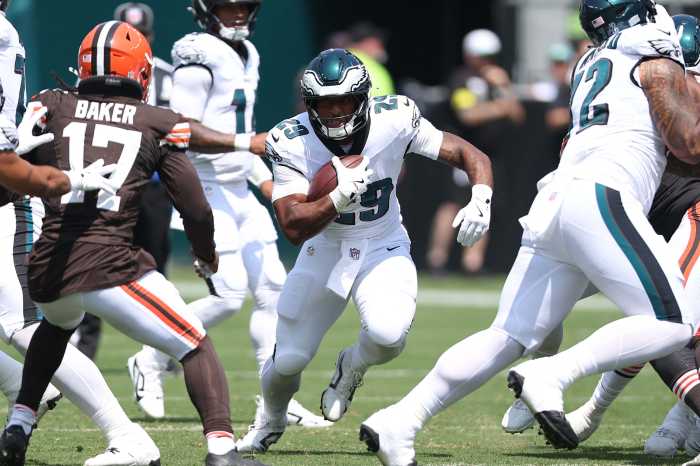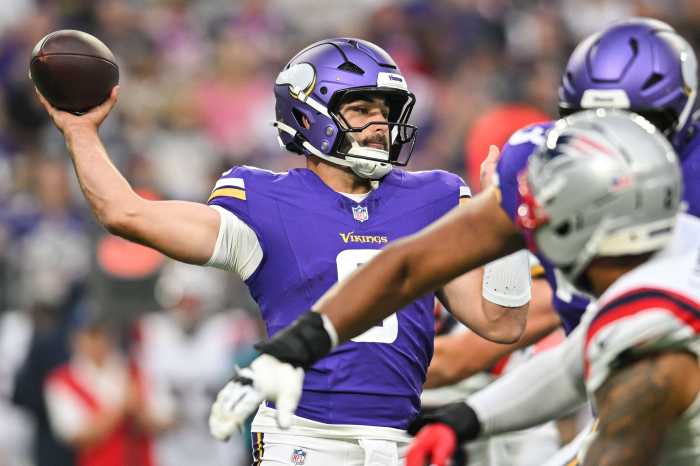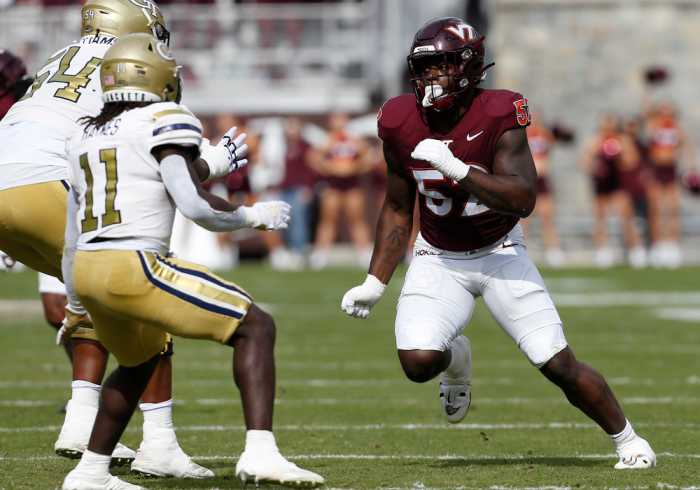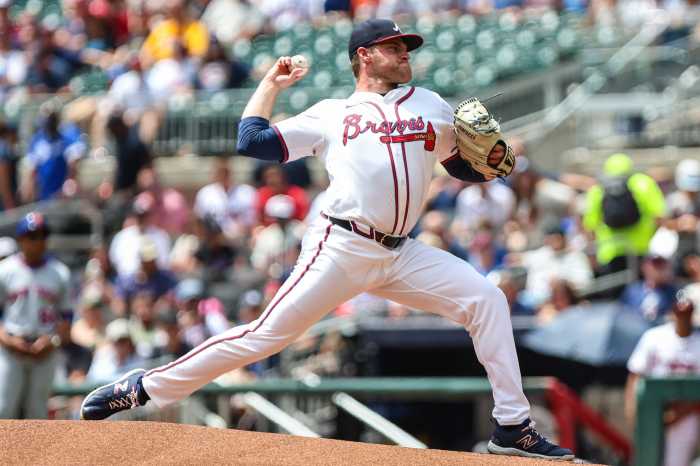The NFL have implemented a few crucial rule changes ahead of the 2024 season that will drastically change how the game is played. While every team is going to have to find new ways to succeed, the Philadelphia Eagles might be among those better-suited to the new-look NFL that we’ll see this season.
No more Hip drop tackle
The biggest shakeup is the ban of the hip-drop tackle. The technique in question is commonly reffered to as a ‘swivel’ in which a defender grabs the ball-carrier with both hands and ‘swivels’ around his hips in a bid to stop his legs from moving, or drop towards his ankles. This is of course safer than some of the harder hits that the league previously banned, but it meant that players were now really emphasizing tackling at the hip and dragging opponents down by swivelling around them. Naturally, this saw a spike in knee/ankle injuries.
There were 15 occasions last season where a player tackled using this technique subsequently missed time due to injury. There were reportedly 230 hip-drop tackles throughout the 2023 campaign, a 60% boom from the 2022 season, which has pushed the NFL to make a change to create a safer environment.
How does this impact the Eagles?
Tackling at the hip isn’t banned, but the action of swivelling down the legs is what the NFL is targeting. This is going to make bringing down slippier running backs even trickier, which is great news for guys like Saquon Barkley.
According to Pro Football Focus, Barkley forced 0.13 tackles per attempt to miss. For context, LeSean McCoy forced 0.15 in 2015. The former New York Giant also averaged a whopping 2.87 yards after contact last year, and if that contact is now harder to sustain because players can’t cling on for dear life, then stopping a runaway train becomes even harder.
Other top free agent backs including Josh Jacobs (0.2 missed per game), and Derrick Henry (0.21 missed per game), and Tony Pollard (0.18 missed per game) quickly found new homes and could also be huge beneficiaries of a crackdown on swivel tackles.
It’s entirely plausible that Eagles GM Howie Roseman foresaw this rule change and decided that this was the year to tactically pay one of the most elusive running backs in the game, who joins the likes of A.J Brown and DeVonta Smith, who are able to push through contact in their own unique ways.
The new Kickoff rule
If that wasn’t enough, the NFL have also introduced a new hybrid kicking rule that blends some of what we saw in the XFL, with NFL tradition.
The plan here is to promote actual kick returns instead of consistent touchbacks, which have started to become the norm in today’s game. The NFL will look to do this by having kickoffs start at the 35-yard-line, as is the norm, with the kickoff needing to land inside a 20-yard wide ‘landing zone’. So long as the ball lands here, it’s deemed legal and returnable. If the Ball misses this box, then it’s placed AT THE OPPOSING 35-yard-line!
Here’s an example of an XFL kickoff:
How does this impact the Eagles?
There are two ways: The return, and the kick itself.
From a return perspective, it’s going to force the receiving player to be more patient and read blocks as opposed to tearing up the field directly into contact. This fits a player like Eagles WR Britain Covey, who really broke out on punt returns last year and returned one kickoff for 30 yards. Other players seemed to rotate on kickoffs, but there should be a real sense of confidence that Covey can handle those duties in 2024 after ranking 5th in the NFL in punt return average last season. He also led the league in punt returns that went 40+ yards (2), and 20+ yards (7).
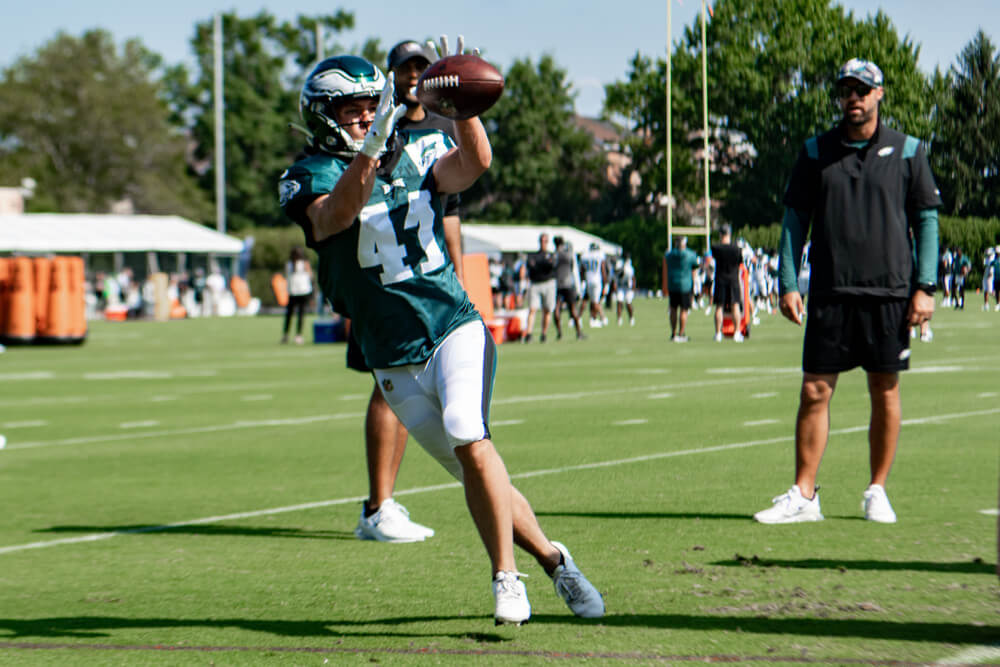
As for the kicks themselves, the Eagles extended Jake Elliott this offseason, making him the joint-highest-paid kicker in NFL history. He might just have the most accurate leg in the entire league today and has no problem driving them in from 50+ yards, while also making all 9 below 30 yards. In fact, he only missed ONE field goal out of 24 attempts shorter than 50 yards in 2023. If anyone is built to consistently hit that landing zone, it’s Jake the Make.
The Eagles have also signed two special-teams aces this offseason in Oren Burks and Zack Baun. Both linebackers do have defensive upside, but all of a sudden, these moves make way more sense. The team really needs starting caliber linebackers and these players just don’t provide that yet. What they will give the Birds, however, is a real tackling prowess on special teams.
Do the Eagles benefit from new rule changes?
It’s safe to say the Eagles are well-suited to the changes made by the NFL. Whether that was by design or not is anyone’s guess, but the team shouldn’t be blindsided by these changes going into the new season and if anything, might be among the teams most likely to benefit.
AP Photo/Chris Szagola

